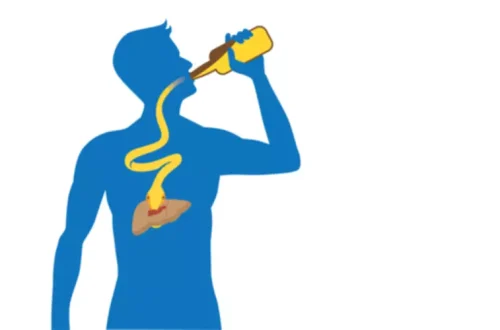
Chronic alcohol use raises your risk for health problems, including heart disease, liver disease, cancer, and mental health disorders. Alcohol withdrawal can be potentially life-threatening, in the case of severe dependence. Medical detox is typically considered the optimal method for allowing alcohol to safely process out of the body while under continual medical supervision. When people have difficulty controlling impulses, trouble regulating their emotions, or may present a danger to themselves and/or others, medical detox is required.

Being “Dry Drunk”
This is heightened when consuming alcohol, according to a 2012 study. Alcohol impairs cognitive function, which means it is more difficult to problem-solve, control anger, and make good decisions when drinking. Decreased cognitive function also means it’s more likely for you to misread a situation and overreact. For example, if you’re intoxicated, you might perceive someone bumping into you by accident as a provocation and respond aggressively. Without your prefrontal cortex in control, some brain parts aren’t checked, resulting in impulsive thoughts and actions. If you take someone more prone to anger, they will be less likely to restrain themselves while drinking.

Individualized, evidence based treatment, to fit your needs.
- At one point, many drinkers have considered whether they should stop drinking altogether.
- There’s no better way to put it — properly addressing alcohol-fueled aggression is crucial for your well-being and relationships.
- Prospective studies have looked at the association between alcohol intake and adiposity gain in various populations, with follow-up periods ranging from several months to 20 years 4, 30, 31.
- Online programs such as Ria Health provide confidential support from the comfort of your home.
- And all too often, as in Ryan’s case, it reflects displacement, directing anger toward a target that is not the source of an individual’s original anger.
- There are several risk factors, all of which impact people differently.
Instead of being a natural emotion, someone with an alcohol use disorder (AUD) will express anger to avoid dealing with unpleasant or adverse circumstances, including the addiction. The inability to control or suppress your emotions can lead to inappropriate or dangerous situations. Heightened responses due to alcohol consumption can make anger intensified.
How To Overcome Alcoholic Rage Syndrome
And the researchers stress their study, published in Annals of Neurology, used carefully controlled prescription medication. It is chemically identical to inhibitory neurotransmitter gammahydroxybutyric acid (GHB), which mimics some effects of alcohol. Excess alcohol use can also impair nutrient absorption in the small intestine and increase the risk of malnutrition.
Cross-sectional Evidence
Not necessarily, studies show that while alcohol and aggression do, indeed, share a neurological link, not everyone gets aggressive after having a few too many. Research has shown that thought suppression may contribute to alcohol-related aggression. One study supporting this finding enlisted 245 men with a history of heavy episodic alcohol use (Berke et al., 2020). They completed surveys assessing their endorsement of traditional masculine norms, use of thought suppression, and both trait and alcohol-related aggression.
- If you notice a connection between drinking heavily and your feelings of anger it is well worth trying this proactive approach.
- For many of us who relied on alcohol to numb emotions, we weren’t able to deal with, alcohol became a trusted companion of sorts.
- Depending on the frequency of your use, you may need to discuss alcohol tapering strategies with your doctor.
- Likewise, we may also misinterpret when someone is being normal and think they are acting hostile or antagonizing.
- However, some people are more likely than others to be angry when drinking alcohol.
- Thus, individuals do not appear to compensate for the added energy from alcohol in the short-term, and alcohol appears to have little effect on satiety 5.
Move Your Body

Alcohol use disorder includes a level of drinking that’s sometimes called alcoholism. Talk to a healthcare provider if you are concerned about your drinking or that of a loved one. Professional treatments and support can help you overcome alcohol misuse and alcohol use disorder and improve your overall health and well-being. Alcohol is a central nervous system depressant that has immediate effects on the body, like intoxication (feeling drunk) and hangovers (unpleasant aftereffects from drinking).

How Alcohol Use Disorder Is Treated
The PFC region of the brain is where we make judgment calls about potential behavior before acting on it. When alcohol impairs this area, a person may be more likely to behave in a way they wouldn’t while sober, including getting confrontational (2). If you’ve ever noticed that you — or friends or family — have intense feelings or express extreme emotions or behavior while buzzed or drunk, you’re not imagining it. Whether you want to optimize your health, can alcohol cause anger problems improve your relationships, manage mental health challenges, or get sober — it’s a discovery process. Figuring out what works and what doesn’t often comes from trial and error. There’s a bit of a thawing out that occurs when you quit drinking alcohol.
Effectiveness of Online Addiction Treatment and Recovery Coaching – Does it Work?
A 2010 study found that uncontrolled anger is bad for your physical and mental health. It can also quickly escalate to verbal or physical violence, harming you and those around you. Dr. Dominic Parrott is a Professor of Psychology at Georgia State University and Executive Secretary for the International Society for Research on Aggression. Though untested in natural settings, this approach holds promise as a method to shift attention away from provoking cues and ultimately decrease alcohol-related aggression. What would happen if we made those cues which inhibit aggression more noticeable? According to Alcohol Myopia Theory, a drunk person should focus predominantly on those inhibitory cues and, as a result, be less aggressive.
The Failure to Consider Future Consequences and Its Impact on Aggression
Maybe they’ll finally say all the things they’ve been holding back or get into a fight with someone that’s been harassing them. Poor judgement and lack of self-control can lead to making irrational decisions, which can make a person even angrier with everything. Even if they don’t engage in any bad behaviour, poor sleep or a hangover may mean that the person won’t be functional the next day, which will put anyone in a bad mood.
Recent Comments